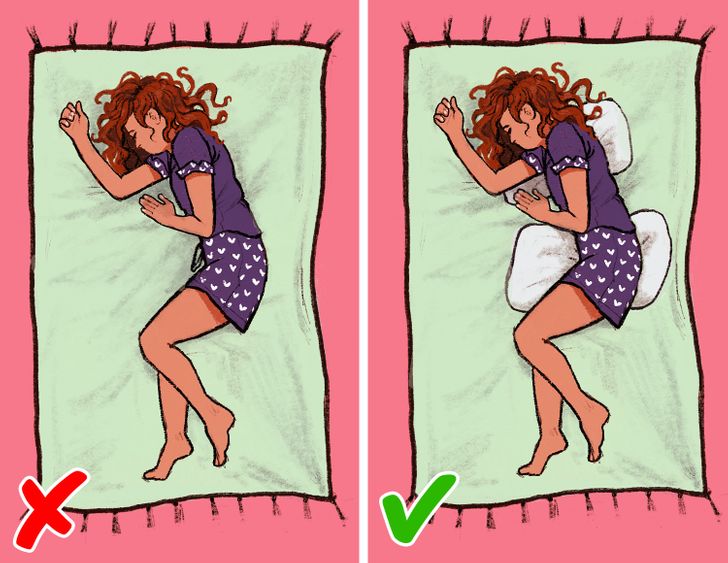12 Moments That Remind Us to Stay Kind Even When Life Isn’t Gentle


Sleeping on a hard floor when you have a perfectly cozy bed might sound like madness. But, as it turns out, even though it might not be that comfortable, it can be very beneficial to your health. An improved immune system, increased lung capacity, and less back pain are only a few of the benefits that you’ll gain when you start sleeping on the floor.
We at Bright Side were tempted to find out whether it’s worth sacrificing a comfy bed for a hard floor, so we did some research and decided to share our findings with you. But before you try to switch to the floor, it’s better to consult with a doctor first.
When you sleep on the floor, your body weight is evenly distributed and there’s less of a strain on your hips, lumbar spine, and shoulders. This allows blood to circulate freely throughout the body during the night, which can help in keeping your organs in the best working order.
Efficient blood circulation can help oxygen and healthy blood to be distributed throughout the body, allowing your heart, lungs, and muscles to work properly. Also, this will allow the white blood cells to be transported in the body as needed, which can help your immune system to fight off sickness and disease more easily.
We often feel the need to slouch because keeping a straight spine throughout the day can be painful for some of us. Well, sleeping on the floor can help align and straighten the spine and neck, which can result in improved posture.
Improved posture can not only ease your neck and shoulder tension but also decrease the risk of migraines and headaches, scoliosis, and joint pain. People that maintain a good, healthy posture might also experience higher energy levels, increased lung capacity, and a better mood.

Ditching your comfy bed and moving to the floor might, in some cases, relieve long-standing pain. Sleeping on a firm surface prevents your body from twisting into odd pretzel shapes, as it allows you to sleep by keeping your spine aligned.
While back and stomach sleepers reap the most benefits from it, side sleepers will need some extra cushioning for their hips and shoulders for a pleasing experience.
Sleep plays a big role when it comes to sciatic nerve pain, as people with this issue experience more discomfort and pain in the mornings. This usually happens because the position you sleep in may lead to increased pressure in that area or cause the nerve to be pinched.
Choosing to sleep on the floor can keep your spine in proper alignment, thus helping in soothing the burning pain and even preventing it from happening.

A comfy bed usually lures us into hitting the snooze button in the morning. And even though this might sound like an innocent habit, going back to sleep in the morning can mess up your sleep cycle, leading to weakening the immune system and other health-related problems.
On the other hand, sleeping on the floor won’t feel that cozy in the morning, but you’ll get the right quality of sleep and feel more rested throughout the day.
If you have allergies or respiratory issues, it’s better to stick to the bed. The floor collects more dust, skin cells, and dirt than other areas, which can cause sneezing, a stuffy or runny nose, and red, watery, or itchy eyes. Also, it can cause difficulty breathing, coughing and wheezing, and even rashes.
What are your thoughts on sleeping on the floor? Will you try it? If you’ve tried it, share your experience with us.











